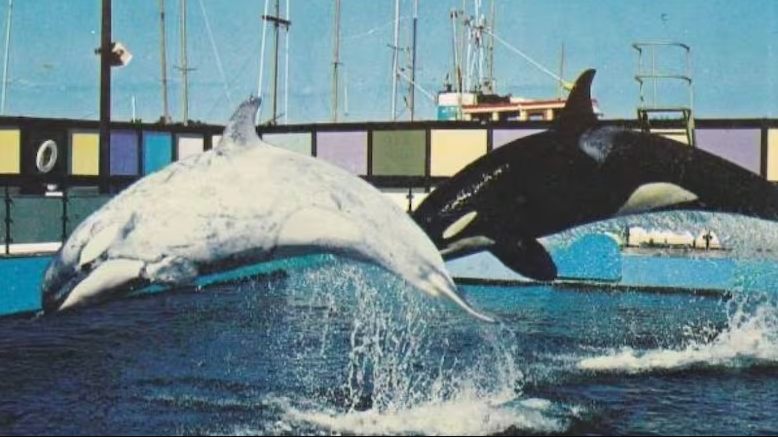The Pedder Bay 5: How a Rare White Orca and Its Pod Were Captured — and Partly Freed — Off Vancouver Island
Sarah Desjardins
7/1/20252 min read


On a stormy morning in March 1970, four men boating near Pedder Bay, just south of Vancouver Island, spotted something extraordinary: a white dorsal fin slicing through the waves.
They had discovered a white orca — one of the rarest creatures in the ocean — swimming with four other killer whales. The group would come to be known as the Pedder Bay 5, and their capture would become one of the most debated chapters in Canada’s marine history.
White orcas are exceedingly rare — only about 10 have ever been recorded, according to marine biologist Stephanie Hayes.
Sealand and the Orca Industry
Among those who encountered the pod that day was Bob Wright, a prominent angler and businessman who owned Sealand of the Pacific, a small aquarium in Oak Bay, near Victoria. At the time, capturing orcas was still a common — and legal — practice for aquariums.
Joining Wright were two young men: Don White and Graham Ellis, both fascinated by marine life. Ellis would later become a globally recognized orca researcher — but in 1970, the three men were on the same boat, witnessing a moment that would shape their lives and challenge their views on marine captivity.
A Controversial Capture
The five orcas were herded into Pedder Bay using nets and boats. But in a twist that remains unexplained to this day, two of the whales were mysteriously released not long after their capture. The how and why of their release — and who was responsible — has never been fully resolved.
The incident marks a turning point in public perception around orca captivity. While Sealand would later become infamous for its role in orca entertainment — and eventually the death of a trainer in the 1990s — the Pedder Bay 5 were at the heart of a growing rift between marine tourism and conservation.
Revisiting the Past in Whale Tale
CBC's Grant Lawrence recounts this moment in West Coast history in the 10-part radio series Whale Tale. Through interviews and archival material, the series unpacks how the Pedder Bay 5 became a symbol of shifting tides in ocean ethics.
The story also captures a broader evolution in how Canadians understand and relate to killer whales — from feared predators, to star attractions, to beloved symbols of wild freedom.
"These animals weren’t just exhibits. They were family, community members, individuals," says Lawrence.
Two were freed. Three remained in captivity. But the legacy of the Pedder Bay 5 lives on — as a cautionary tale, a mystery, and a milestone in Canada’s relationship with the sea.
News
Stay updated with the latest BC news stories, subscribe to our newsletter today.
SUBSCRIBE
© 2025 Innovatory Labs Inc.. All rights reserved.
LINKS
